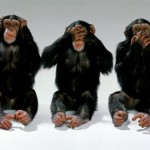Why can’t we all just get along? Because we can’t. Conflict is as natural for people as it is for animals.
The workplace is a relatively small, closed system. There are limited resources, promotions, recognition, raises, and resources. It’s easy to blame employee conflict on differences in personality and style or staff behaving poorly.
However, in most cases – workplace conflict function is a management problem. If you wonder why can’t we all just get along, here are examples of organizational or leadership issues that help create workplace or employee conflict.
Incompetent boss or poor performance. We have all worked for an incompetent boss who doesn’t deserve to be in his/her job or a peer who likewise isn’t cutting it. In every case, it creates conflict between individuals. This is why it is so important to hire smart, train hard and then manage easy.
Shared, or unclear responsibility. When responsibility is shared or isn’t clearly defined, conflict will happen. Employee tasks and responsibilities need to be clearly divided or you will find lack of ownership and breakdowns.
Departments or functions that are centralized. Whenever you have organizational functions like IT, HR, sales or marketing that are centralized there’s high potential for conflict between employees arguing over resources. Make sure you have regular meetings and effective leadership to create win win solutions.
Ineffective review systems and pay. Nothing causes employee conflict more than when review systems or pay are dysfunctional. Raises or promotions are often done by tenure instead of merit and performance criteria isn’t well defined. Also, most review and pay systems aren’t flexible enough to allow for certain individuals with high potential to be offered an accelerated path. When you do this, you will see a once very loyal and motivated employee become someone who doesn’t care for your company much anymore. Don’t be surprised if you say they looking for a job shortly.
Poor processes. Conflict is often a sign of growth pains because a company has outgrown its processes and its scalability is limited. Whether it’s annual forecasting, planning, budgeting, program or product development, when these or other processes break down, it creates lack of accountability, finger-pointing, back-stabbing, blame and conflict.
There are certainly times when people just don’t get along. On the other hand, when conflicts are chronic, this is a sign of executive dysfunction. Before you jump to blame staff, look at your management practices first to see if your leadership team can first make any changes. You will then be able to answer the question “Why can’t we all just get along?”

